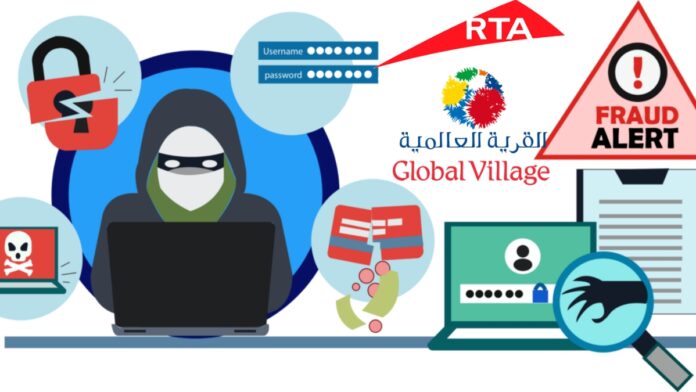In a shocking turn of events, Dubai residents face financial losses of thousands of dirhams due to deceptive websites posing as legitimate platforms for services like Nol card recharges and Global Village ticket bookings. The perpetrators behind these fraudulent sites are preying on unsuspecting individuals seeking convenience in their daily transactions.
One alarming revelation is that a simple Google search for ‘Nol recharge’ brings up the first four results as fraudulent websites mimicking the official RTA platform. This means residents looking to top up their Nol cards are inadvertently exposing themselves to potential scams.
Mohammad Salman, a Dubai resident, recently experienced firsthand the consequences of falling victim to one of these deceptive websites. Attempting to recharge his Nol card with a modest amount of Dh30, Salman lost a staggering Dh1,051. The fraudulent website closely resembled the RTA’s official platform, lulling him into a false sense of security.
Upon clicking through the site, Salman was directed to a spoofed landing page, prompting him to enter his Nol tag ID, email address, and recharge amount. Oblivious to the scam, he proceeded to the next step, confirming the payment. In a hurry, Salman overlooked the transaction amount and copied the One-Time Password (OTP) from the payment window.
The realization hit him later when he discovered that Dh1,051 had been deducted instead of the intended Dh30. Initially attributing it to his mistake, Salman only grasped the severity of the situation when he checked his Nol balance. Swiftly filing a complaint with Dubai Police and his bank, Salman uncovered a trail leading to a company named Mono Direct FJ 1 in Kyiv, Ukraine—indicating a pattern of fraudulent activities reported by other victims on social media.
In a separate incident, another individual lost over a thousand dirhams while attempting to book a Dh22 ticket for Global Village on a dubious online platform. This adds to the growing list of cases where residents fall prey to deceptive websites, resulting in significant financial setbacks.
Dubai authorities have consistently warned residents against responding to unsolicited calls demanding OK payments or requesting the sharing of One-Time Passwords (OTPs). A recent social media post by Dubai Police reiterated this caution, emphasizing the importance of vigilance when prompted to make payments via links and share personal information.
In conclusion, the surge in fraudulent websites imitating trusted platforms highlights the need for heightened awareness among residents. Exercise caution when navigating online transactions, verify the authenticity of websites, and report suspicious activities promptly. These unfortunate incidents remind you that staying vigilant is crucial in safeguarding your finances from evolving cyber threats.





